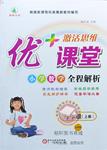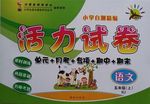题目内容
| |||||||||||||||||||||||||||||||||||||||||||||||||||||||||||||||||||||||||||||

 激活思维优加课堂系列答案
激活思维优加课堂系列答案 活力试卷系列答案
活力试卷系列答案 课课优能力培优100分系列答案
课课优能力培优100分系列答案
| |||||||||||||||||||||||||||||||||||||||||||||||||||||||||||||||||||||||||
阅读下列短文,从每小题所给的A、B、C、D四个选项中选出最佳选项。
Mr Black works in a hospital (医院). As a good 1 , the people in the town like him. He’s often 2 to the patients (病人) and looks them over carefully. 3 he’s always busy and has little time to rest.
One morning Mr Black got to the hospital and saw there was a fat woman in the 4 . He called her into his office and asked, “ 5 , madam ?”
“It was my birthday yesterday, sir”, said the woman. “My husband gave me a 6 . But I couldn’t push my way in (挤进) it.”
“ 7 , madam,” said Mr Black, “You must lose some weight (减肥). You’ll be able to 8 your coat, if you do all that I say.”
“You’re 9 , sir,” said the rich woman. “He bought me not a coat, but an expensive 10 .”
| 【小题1】 |
|
| 【小题2】 |
|
| 【小题3】 |
|
| 【小题4】 |
|
| 【小题5】 |
|
| 【小题6】 |
|
| 【小题7】 |
|
| 【小题8】 |
|
| 【小题9】 |
|
| 【小题10】 |
|
阅读下列短文,从每小题所给的A、B、C、D四个选项中选出最佳选项。
Mr Black works in a hospital (医院). As a good 1 , the people in the town like him. He’s often 2 to the patients (病人) and looks them over carefully. 3 he’s always busy and has little time to rest.
One morning Mr Black got to the hospital and saw there was a fat woman in the 4 . He called her into his office and asked, “ 5 , madam ?”
“It was my birthday yesterday, sir”, said the woman. “My husband gave me a 6 . But I couldn’t push my way in (挤进) it.”
“ 7 , madam,” said Mr Black, “You must lose some weight (减肥). You’ll be able to 8 your coat, if you do all that I say.”
“You’re 9 , sir,” said the rich woman. “He bought me not a coat, but an expensive 10 .”
|
1. |
|
|
2. |
|
|
3. |
|
|
4. |
|
|
5. |
|
|
6. |
|
|
7. |
|
|
8. |
|
|
9. |
|
|
10. |
|
| 完形填空。阅读下列短文,从每小题所给的A、B、C、D四个选项中选出最佳选项。 | ||||
| What is the population of China? There are more than 1.2 billion people in China. It is 1 one fifth of the world's population. How to control the population growth is a big problem. Some people think it 2 to control the population growth. But I don't quite agree 3 them, because where there is a will, there is a way. The question is how we could 4 it known to everyone how serious the population problem is. Our farmland is becoming less and less to everyone. We have already got too many mouths to feed. 5 we control the population growth, many people will die 6 hunger. Too fast population growth have been and will be bad for our nation. Though laws have been passed to control the population growth, in some places 7 is done to carry out (贯彻) the laws. We should make people 8 that it is foolish of them to bring too many children into the world. They shall no longer do what they have been doing for many years. We are fighting 9 too fast population growth. Yet the fighting won't end 10 everyone knows its important and does something for it. | ||||
|
| 完形填空。阅读下列短文,从每小题所给的A、B、C、D四个选项中选出最佳选项。 | ||||
| I'm taking my family to other countries to have a trip. We are going by train 1 New York, and then take a ship to Europe. When we 2 in Europe, we're going to some countries for sightseeing (观光). We'll go to places 3 by train or by bus. We are planning to fly home. It 4 us a long time to decide where to go, but I think we have planned a very 5 trip. We will go to England, France and Italy. My wife is very interested in 6 to France because she is a teacher of French. And my brother is looking 7 to a trip to Italy because he speaks Italian very well. We also 8 about how we would go to Europe. At first we wanted to fly because it would be 9 and would save more time. But my brother likes to take a boat trip and the children 10 that, too. What do you think of my trip? | ||||
|
